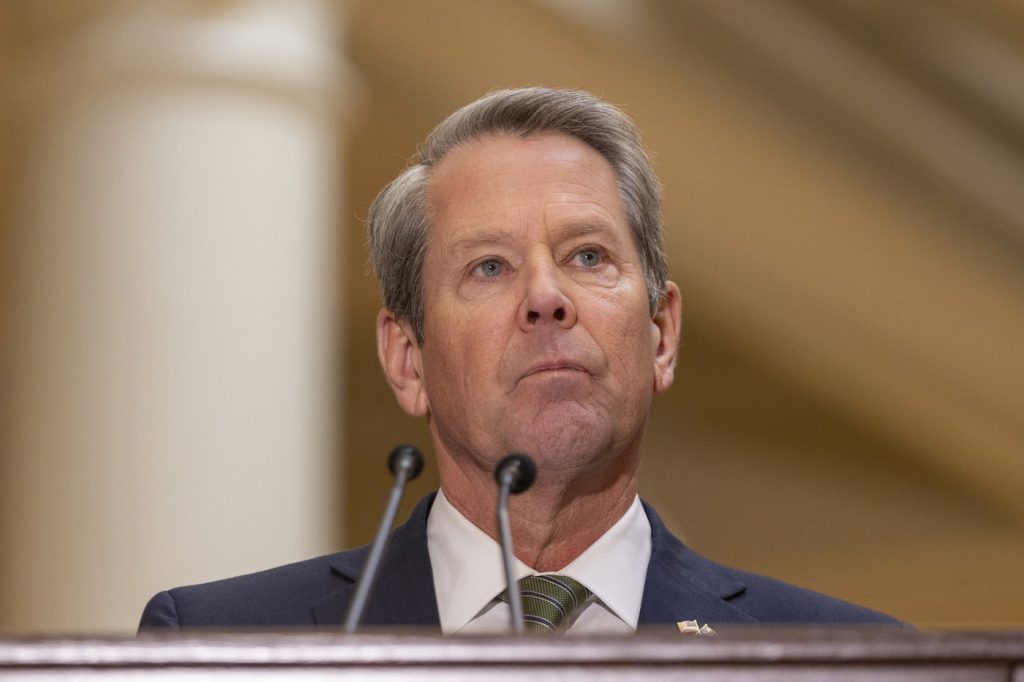ATLANTA (AP) — Georgia's Pathways to Coverage program, which provides health insurance to low-income adults who can document work or other activities, has been granted a 15-month extension by the Trump administration. The extension, announced by Republican Governor Brian Kemp, allows the program to continue through December 2026, despite its initial expiration date being set for next week.
The Pathways to Coverage program serves as a pilot initiative within the state-federal Medicaid program. It began after a lengthy court battle with President Joe Biden’s administration, which sought to end the program. Governor Kemp emphasized the need for an extension, citing the delays in launching the program as a reason for the request.
This program has garnered attention nationwide, particularly since similar work requirements have been imposed in other states as part of a broader legislative agenda initiated under Trump’s administration. Beginning in 2027, adults seeking Medicaid coverage will be required to demonstrate that they are working, taking educational classes, or engaging in community service for a minimum of 80 hours per month. Georgia's own requirements mirror these principles but have seen far lower enrollment numbers than originally anticipated, covering only 9,175 individuals as of August, much less than the projected 25,000 for the first year.
Critics argue that the experiences in Georgia paint a concerning picture for other states, warning that the stringent documentation process could lead to millions losing health coverage under the new law. Republican representatives have defended the low enrollment numbers, suggesting that Medicaid should serve as a temporary safety net for those seeking employment-based insurance.
Pathways is Kemp's response to ongoing calls for the expansion of Medicaid to include all adults earning below 138% of federal poverty line wages — a provision initially introduced under former President Barack Obama’s healthcare overhaul. Instead of opting for the expansion, Kemp’s administration created Pathways, which offers coverage to individuals earning up to the poverty line of $15,650 per year. Georgia's traditional Medicaid program continues to assist the most vulnerable populations, including low-income children, people with disabilities, and certain eligible adults in nursing facilities.
As part of the newly extended program, health coverage will now be accessible to parents and guardians of children under six without additional work requirements. Beneficiaries will also only need to report their qualifying work or activity hours once a year rather than monthly, addressing complaints about the previous monthly reporting system, which many found challenging to navigate. Furthermore, coverage will begin on the first day of the month in which an application is received—encouraging healthcare providers to assist uninsured patients in completing applications to ensure they can be compensated for services already rendered.
Governor Kemp praised the collaboration with Trump’s administration, stating, “Unlike the previous administration which chose to sue, obstruct, and delay, President Trump and his team have worked alongside us to improve Georgia Pathways and ultimately deliver a better program to Georgians who need it most.”
According to a federal watchdog report submitted earlier this month, Georgia expended $54.2 million on administrative costs compared to $26.2 million on healthcare from 2021 to mid-2025. Notably, the ratio of administrative spending has notably decreased, with 96.5% going to administrative costs in fiscal year 2023, dropping to 58.8% in fiscal year 2024, with expectations of further decline in 2025.
With the majority of funding coming from federal sources—about 90%—Georgia has utilized an additional $20 million in federal grants to assist with the program's implementation. Critics, including Democratic U.S. Senators Raphael Warnock and Jon Ossoff, have lambasted the Pathways program as excessively bureaucratic and problematic. Warnock remarked that the initiative is primarily effective at excluding working individuals from receiving health coverage while enriching corporate consultants overseeing the program.
He stated, “Today’s decision will continue to keep health care away from Georgians who need it most. It is wrong, it is immoral, and it only makes our country sicker and poorer.”










